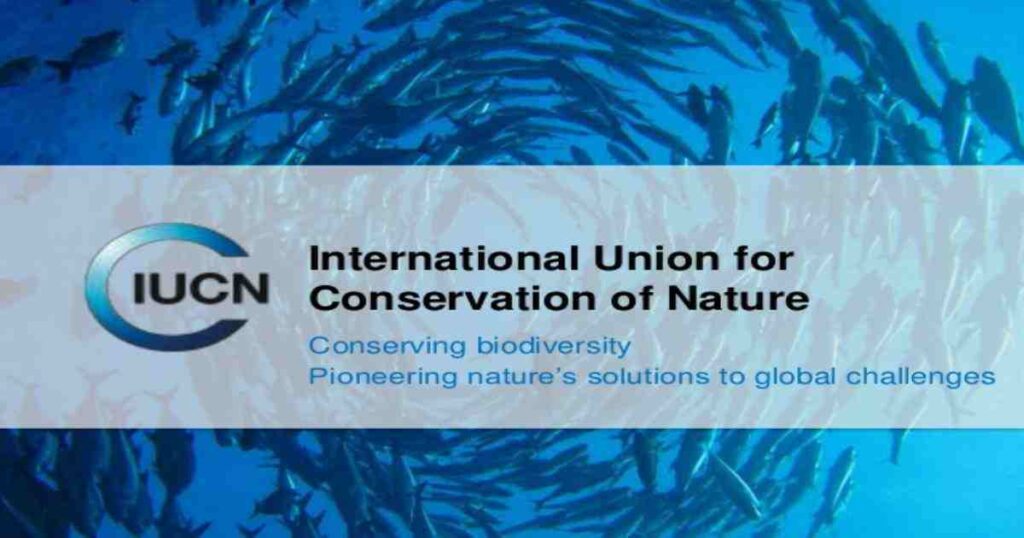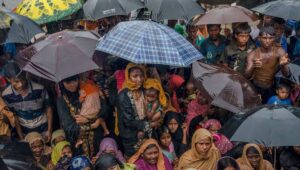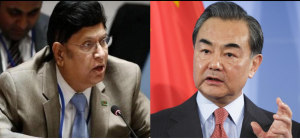Civil society organisations (CSOs) can play a critical role in broadening the meaning of water through the inclusion of cultural, gender, ecological, and psychological aspects, says an international relations expert.“Water diplomacy is not only water-centric; it entails how actors define the meaning of water,” said Dr. Medha Bisht, Senior Assistant Professor, Department of International Relations, South Asian University, Delhi.
Dr Bisht made the remarks at a webinar hosted by the International Union for Conservation of Nature (IUCN) on Wednesday on Hydro-diplomacy as a tool for cooperative water governance.
It was part of a series of webinars designed for civil society organisations (CSOs) on the management of the Ganges-Brahmaputra-Meghna (GBM) river basin, said IUCN on Thursday.
Since 2010, Bangladesh and India have shifted the narrative from ‘water sharing’ to ‘water management,’ because it can help build collaboration among stakeholders for integrated water resource management, said former Ambassador Tariq A Karim.
“The Ganges Water Treaty between Bangladesh and India is based on trade-offs, diplomats realized this was necessary to develop the Treaty,” said the former diplomat and member of the India Bangladesh Chamber of Commerce and Industry (IBCCI).
The objective of the webinar was to introduce participants to water-diplomacy principles and strategies that CSOs can apply in the GBM rivers to strengthen regional water cooperation.
Beyond water, the issue of river sediment flow emerged as an important issue.
Sediment flow is linked to regional and local food security, particularly in Bangladesh, and requires regional cooperation; therefore, it is an important theme to include in current bilateral agreements on rivers.
“Rivers are the shared symbol of common resources and means for regional cooperation. Invoking cultural narratives in the water dialogues contributes to building regional and community level narrative on river and water resources,” said Sabyaschi Dutta, Executive Director, Asian Confluence, India.
The role that CSOs play in influencing and developing local narratives on transboundary water governance was highlighted throughout the webinar, as a useful mechanism to demonstrate local solutions for cooperation on water that can be upscaled to the national level.
For example, CSOs initiated a dialogue between local farmers from Assam and the local Bhutanese officials on the Saralbhanga River and the Bhutanese government agreed to stop the upstream diversion of water.
Bipul Chatterjee, Executive Director, CUTS International Jaipur, India also emphasised the importance of local narrative on governance.
He said, “CSOs bring in a bottom-up approach to hydro-diplomacy. It is important that CSOs engage with the local line departments and build their understanding of the challenges faced by local communities.”
To be effective in facilitating regional water cooperation, CSOs need to be better integrated in a network, understanding the key actors and how to connect them.
They need to engage with formal initiatives and processes and develop a community of CSOs, with a common vision.
IUCN facilitated a visioning process gathering more than 25 CSOs from the five GBM countries, leading to the development of ‘A civil society vision for connecting the people of the Ganges-Brahmaputra-Meghna (GBM) river basin.’
However, because of increasing geopolitical tensions in the GBM region in the last 15 years, the space for CSO participation in regional water dialogues is shrinking and limiting their effective contribution to water governance arrangements.
‘’The community and CSOs have little say in the development of water treaties in the GBM region,” said Ajay Dixit, Executive Director, Institute for Social and Environmental Transition, Kathmandu, Nepal.
He also reminded participants that the water treaties in the region are very limited in scope.
“Waters are still being seen as shared, instead of as a common resource’’ he said.
Most of the current bilateral water agreements take a construction-focused approach, targeting one issue such as flood control, rather than planning for the integrated management of the basin.
The webinar participants agreed on the need for governments to move from seeing water diplomacy as only a way to solve conflicts, to a more positive and comprehensive approach to enhance mutual benefits for countries and their respective communities.
There is a need to shift from ‘civil society only’ networks to policy networks that facilitate constructive engagement between state (governments) and society, to foster a more effective dialogue on water diplomacy, they said.
The webinar series is part of the BRIDGE GBM project, facilitated by IUCN, and funded by the Swedish International Development Cooperation Agency (Sida) through the Oxfam Transboundary Rivers of South Asia (TROSA) programme.
The project aims to build the water governance capacity of a network of CSOs in the GBM River Basins, with a focus on strengthening CSO engagement in transboundary water management issues. – Agencies




